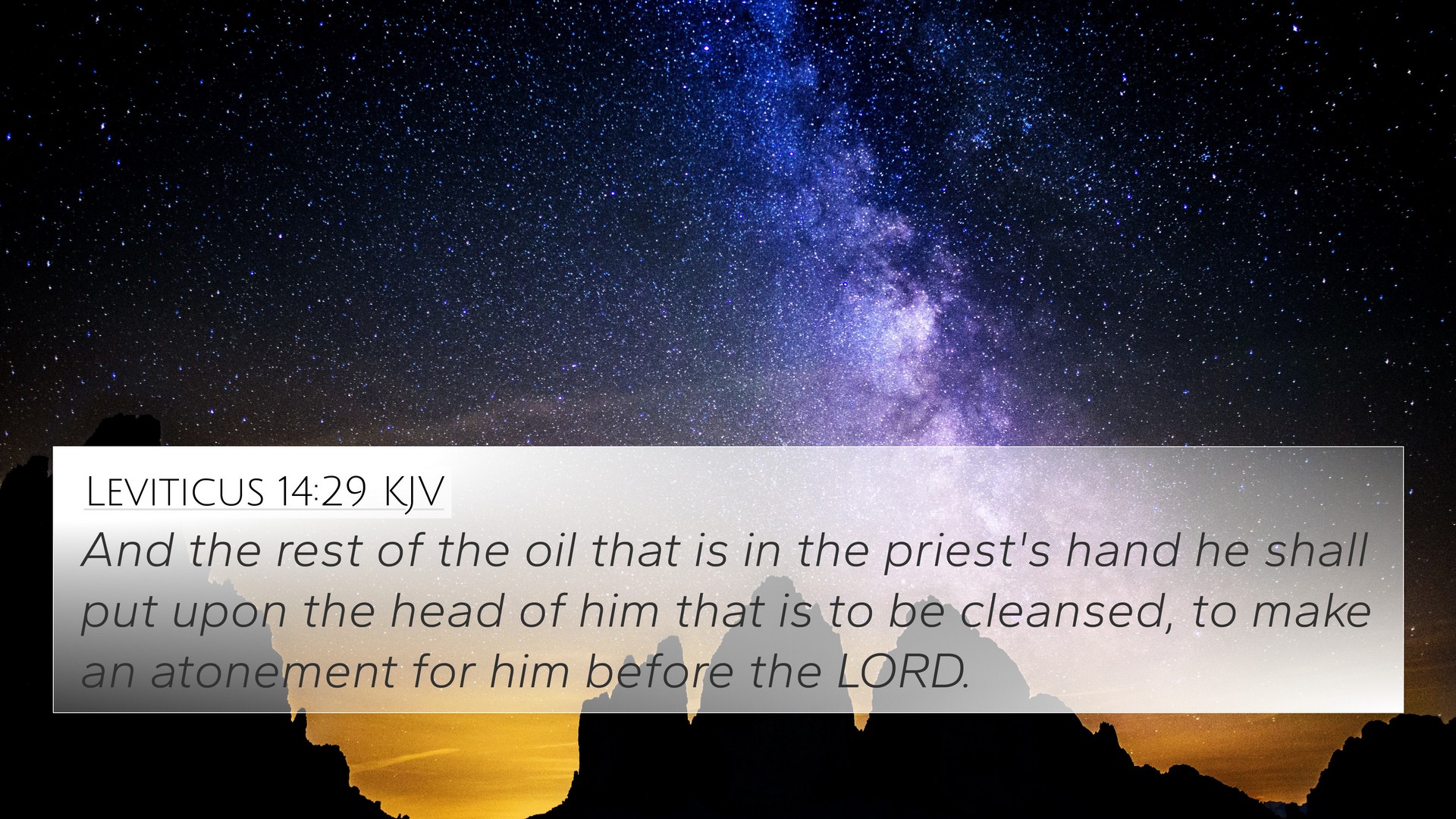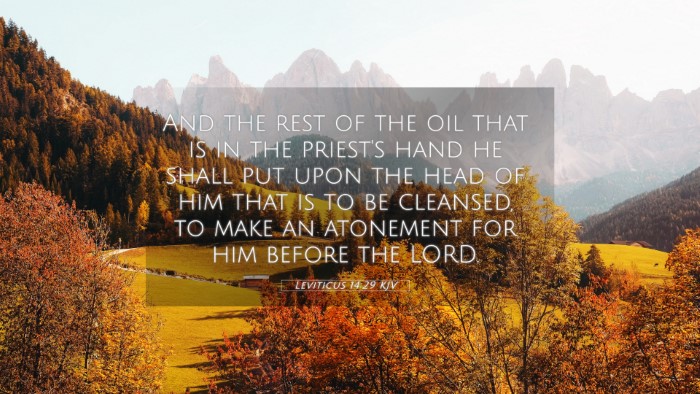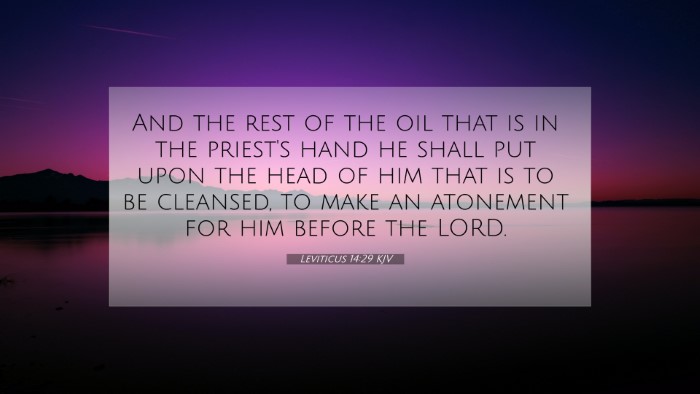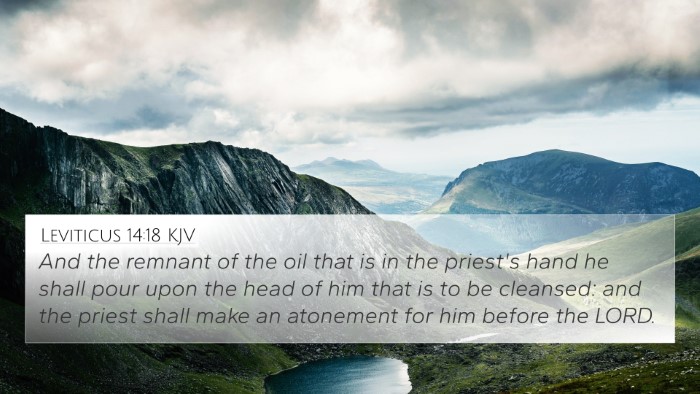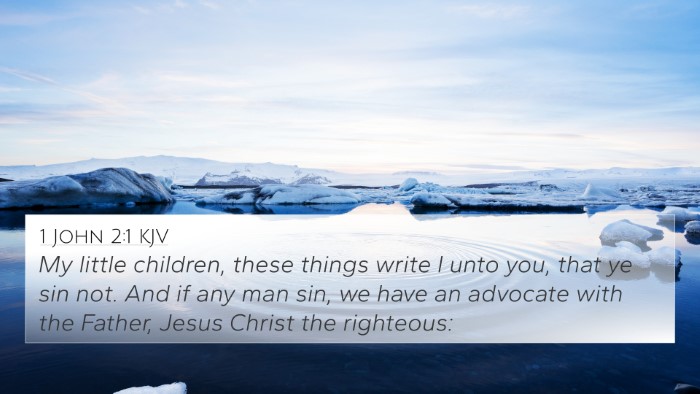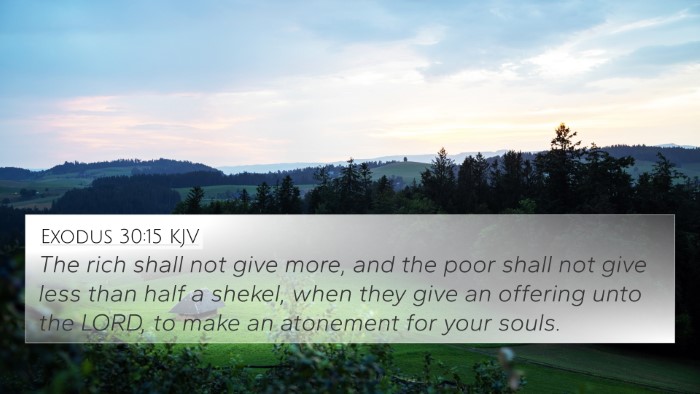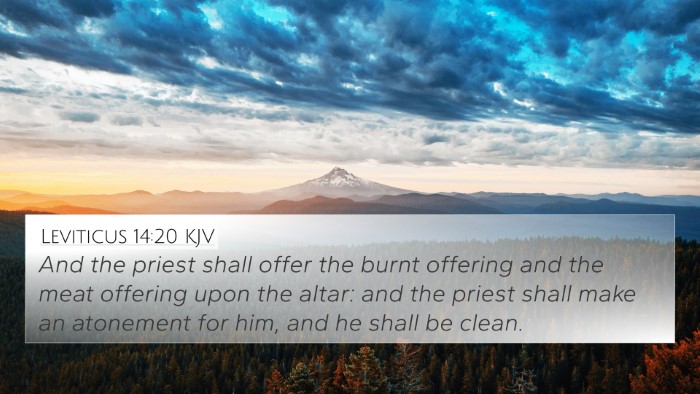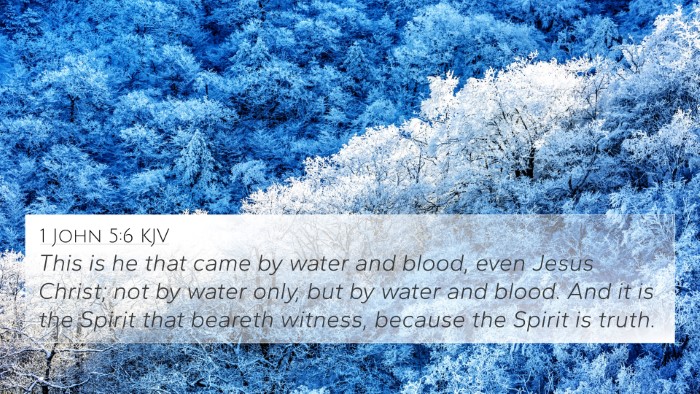Understanding Leviticus 14:29
Leviticus 14:29 is a significant verse within the laws given to the Israelites regarding ceremonial cleansing, particularly relating to leprosy. This verse states:
“And the rest of the oil that is in the priest's hand he shall put upon the head of him that is to be cleansed: and the priest shall make an atonement for him before the Lord.”
Summarized Meaning
This verse describes the conclusion of the cleansing ritual for the leper, emphasizing the importance of the anointing with oil as a symbol of the person's restoration and the priest's role in making atonement. It encapsulates several theological themes relevant to both Old and New Testaments, particularly concerning purity, atonement, and the priestly duties in the context of Israelite worship.
Insights from Public Domain Commentaries
Matthew Henry's Commentary
Matthew Henry emphasizes the significance of the oil as a representation of the Holy Spirit, highlighting that the application of the oil signified both cleansing and the empowerment of the cleansed individual for life in the community. The act of the priest makes a profound statement of acceptance back into fellowship after a time of separation due to uncleanness.
Albert Barnes' Notes
Albert Barnes points out that the priest's action of anointing the one cleansed is an essential part of the ceremonial process. This not only signifies physical healing but also spiritual restoration, underscoring the importance of community and relationship with God through the priestly mediation. The atonement reflects God’s desire for His people to be in good standing, both with Him and within their community.
Adam Clarke's Commentary
Adam Clarke discusses the symbolic nature of the rituals outlined in Leviticus 14:29. He notes that the oil itself is representative of divine blessing and healing. Clarke explains that the action performed by the priest serves as a renewal of covenantal relationship, bringing the individual back to a state of holiness and favor before the Lord.
Connections to Other Bible Verses
Leviticus 14:29 can be understood in the broader context of biblical atonement and purification rituals. Several verse connections emerge, including:
- Exodus 29:7 - The anointing of Aaron as the high priest parallels the idea of sanctification with oil.
- 1 John 1:9 - The concept of confession and cleansing directly relates to the priest's role in atonement.
- Hebrews 9:13-14 - The purification rituals of the Old Testament find their fulfillment in Christ's sacrifice.
- James 5:14 - The anointing of the sick echoes the practice of healing and restoration.
- Psalm 23:5 - "You anoint my head with oil" speaks to the blessings and care provided by God.
- Isaiah 61:1 - The anointing of the Messiah for healing and restoration points to the spiritual implications of cleansing.
- Romans 12:1 - Offering oneself as a living sacrifice connects to the theme of consecration found in Levitical laws.
- Matthew 8:2-3 - Jesus healing the leper illustrates the fulfillment of this cleansing law.
- Luke 4:18 - Jesus declares his ministry of healing and liberation, resonating with the implications of Leviticus 14:29.
Thematic Bible Verse Connections
This verse encapsulates themes of:
- Healing and Restoration: A common motif throughout the Bible that emphasizes God's desire to restore His people.
- Atonement: The process of making amends, deeply entrenched in the sacrificial system and fulfilled in Christ.
- Community and Acceptance: Reintegration into community as a critical aspect of healing.
- Divine Blessing: The oil symbolizes God's favor and presence in the life of the believer.
Cross-Referencing Biblical Texts
Cross-referencing Bible verses helps to deepen understanding. Here are tools and methods beneficial for engaging in cross-referencing:
- Use a Bible concordance for locating verses related to healing and atonement.
- Employ a cross-reference Bible study guide to navigate parallel themes and ideas.
- Investigate a Bible cross-reference system that links Old Testament practices with New Testament fulfillments.
- Explore Bible chain references to follow themes through scripture.
Conclusion
Leviticus 14:29 stands as a critical verse in the understanding of biblical themes of cleansing and restoration. Its implications stretch far beyond its ceremonial context, offering insights into God's restorative power and the role of Christ as our ultimate High Priest. For those studying the Bible, applying tools for Bible cross-referencing allows for a greater grasp of the intricate connections within Scripture.
